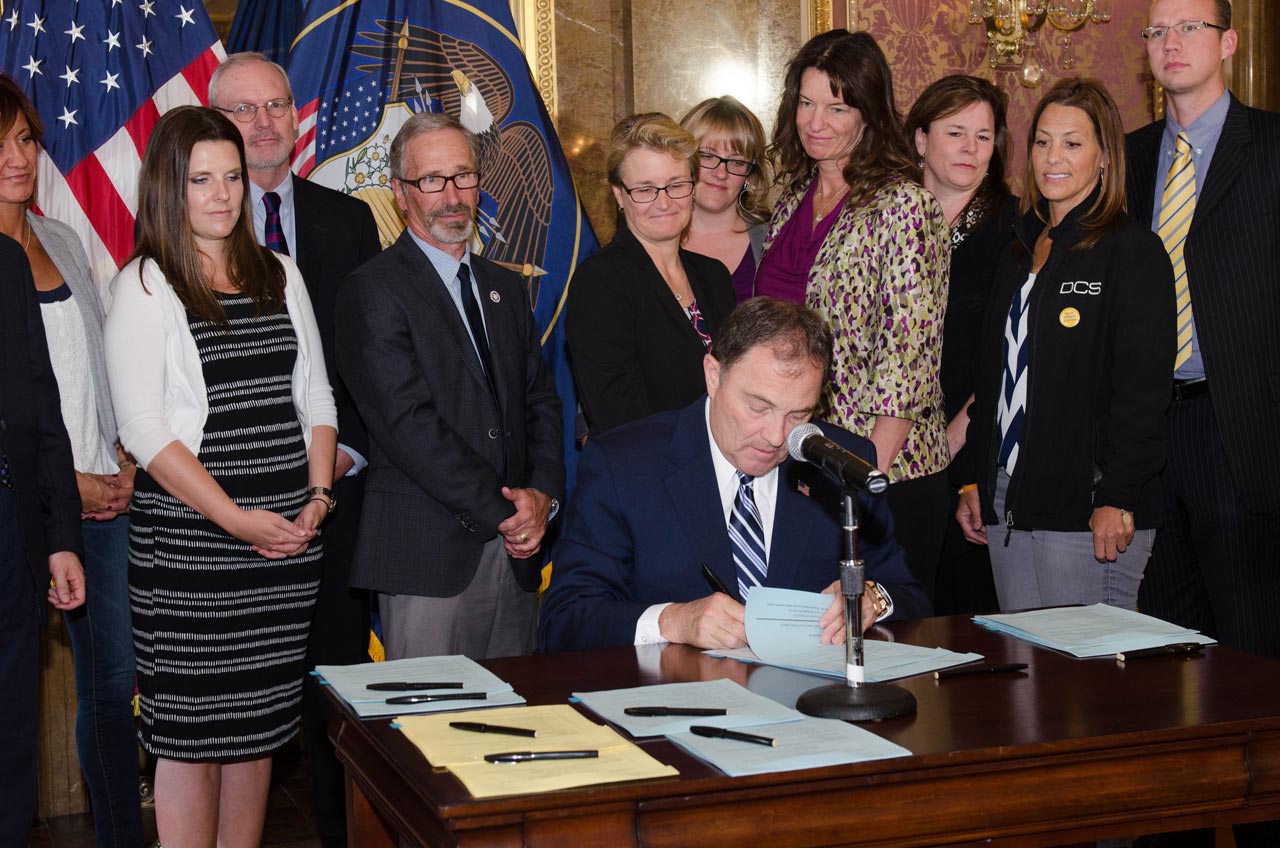Mandating clinical training in Utah

On May 11, 2015, Utah Gov. Gary Herbert ceremoniously signed into law five bills related to the problem of suicide in Utah, while citizens who have survived a suicide loss look on. Among these is Utah H.B. 209, which mandates that certain behavioral health professionals are trained in suicide risk management to retain credentialing to practice in the state. Photo courtesy of Utah Office of the Governor.
Utah is dedicated to improving clinical assessment, treatment and management of suicide risk to reduce the incidence and prevalence of suicide deaths, attempts and plans for Utah citizens.
In efforts to drive quality improvement statewide, the Utah Division of Substance Abuse and Mental Health (DSAMH) is intent on bringing training in best-practice treatment to mental health clinicians in the state. The state is beginning with those who work in 13 local mental health authorities, and making evidence-based online training available to them.
Utah House Bill 209, recently signed into law by Gov. Gary Herbert (see photo above), mandates that certain behavioral health professionals must complete a minimum of two hours of suicide prevention training to obtain or renew licensure in the state.
“Improving clinical care is critical, and treatment, intervention and follow-up are essential to that,” says Kim Myers, Suicide Prevention Coordinator, Utah DSAMH. She notes that Utah is in the midst of rigorous statewide performance improvement initiatives in public behavioral health settings.
This initiative is focused on treatment, intervention and follow-up—all cornerstones of Zero Suicide, an initiative of the U.S. Dept. of Health and Human Services, one that Utah is part of.
“Right now, we’ve got best-practice tools in place to assess people at risk for suicide. We’re also using best-practice safety planning tools,” notes Ms. Myers. “It’s vital that our clinicians have an actual pathway to treatment that people feel comfortable with—including practitioners and their patients.”

